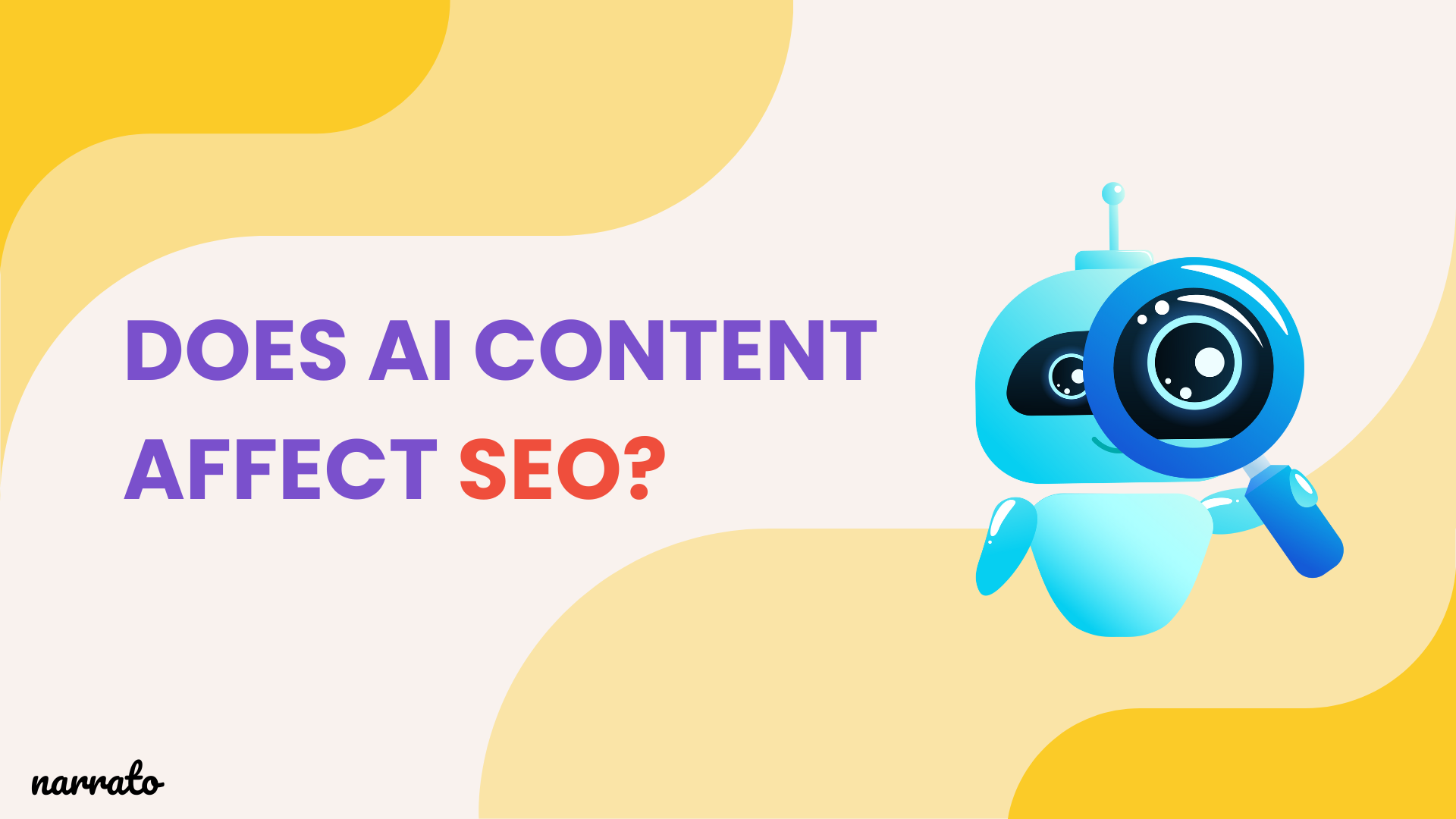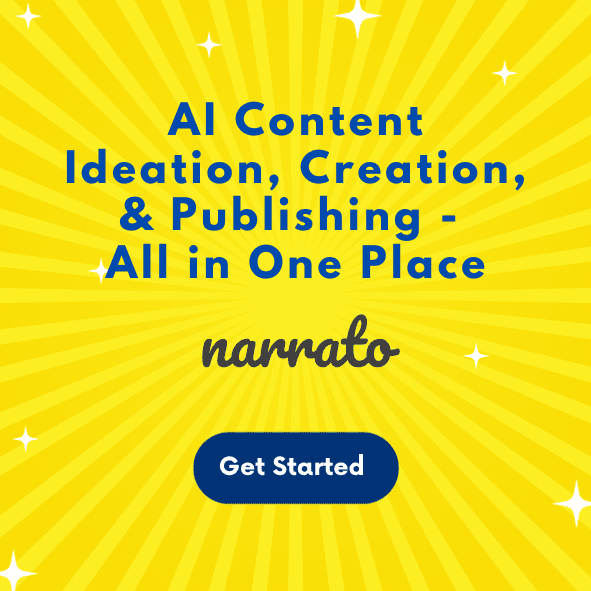You’ve probably been hearing a lot about AI lately, right? AI can do this, AI can do that. As more marketers and content creators turn to AI content generators, the big question on everyone’s mind is: Does AI content affect SEO? And it’s an important question because, at the end of the day, we all want our content to rank well on Google and other search engines. This article will provide you with the answer to this all-important question.
Let’s dig into how AI content creation fits into the SEO puzzle and what it could mean for your website’s visibility.
Understanding AI content and SEO
Tips for improving your content SEO with AI
- Use AI to research your audience
- Use AI for keyword research and SEO
- Use AI as a starting point for content
- Always fact-check and edit the content
- Pose questions throughout your content
- Add original research and thought into AI-generated content

Understanding AI content and SEO
Before we jump into AI content’s impact on SEO, let’s break down what we’re talking about.
First up – AI content. AI generated content refers to text, images, or other forms of media generated by artificial intelligence. Leveraging advanced algorithms and machine learning, AI can create anything from blog articles to product descriptions, sometimes indistinguishable from human-made content. It’s much like having a virtual assistant that understands language nuances, industry trends, and user preferences. For instance, when you input a command or a keyword in any of Narrato’s AI content creation templates, the AI generates content based on your exact specifications.
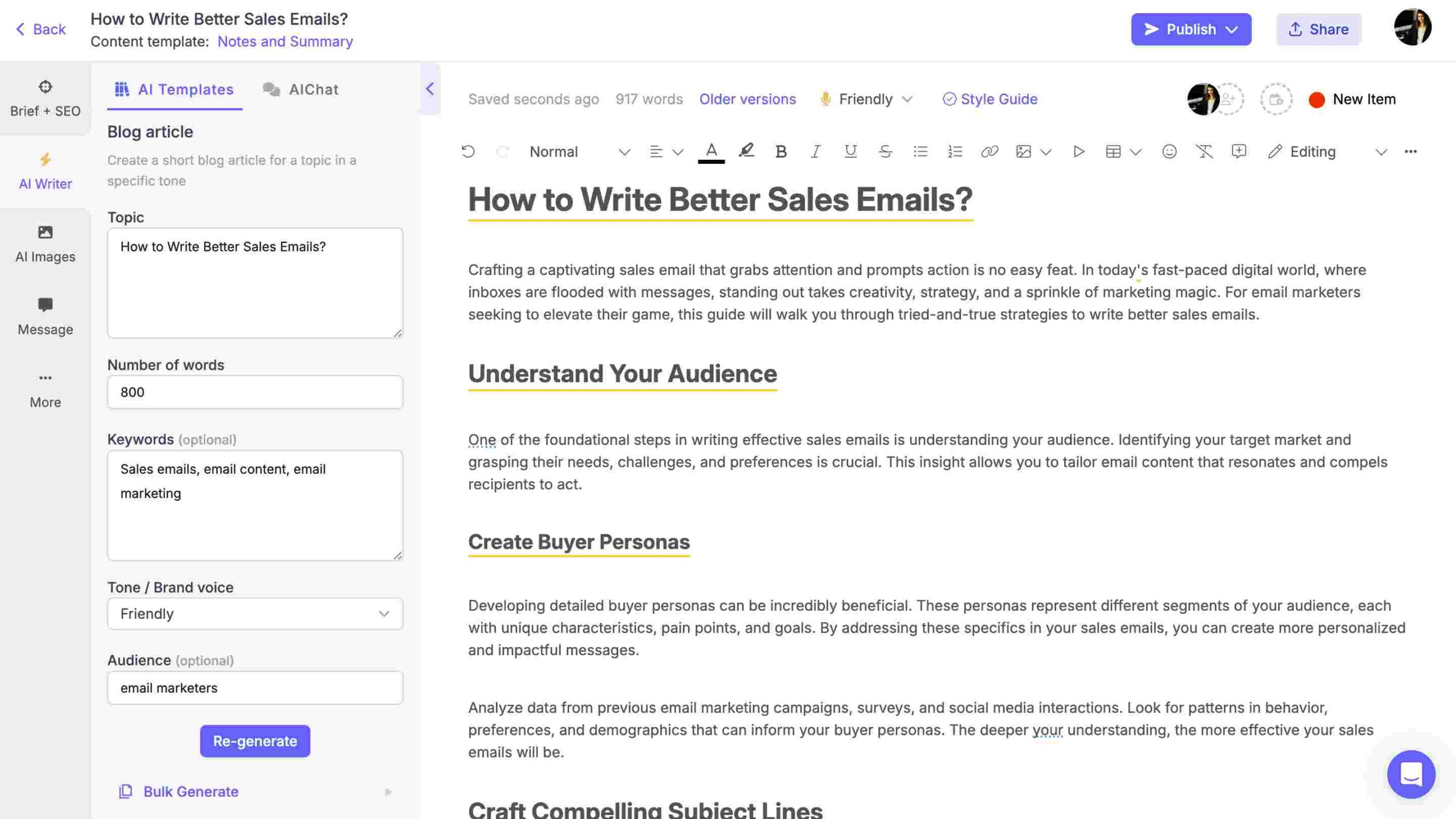
This AI tool also offers additional options to tweak the tone and style of the content, making the content even more personalized. It can produce anything from a brief paragraph to a full article (and even AI images) in no time at all. It can be great for cutting down the time and effort needed in content creation.
Now, let’s talk a bit about some fundamentals of SEO. SEO, or Search Engine Optimization, may sound intimidating, but it’s essentially about getting your content noticed by search engines like Google. The basic principles of SEO revolve around understanding how search engines rank content and making sure your content aligns with those criteria. Here are some key components of content SEO:
- Keywords: These are the words or phrases someone types into a search engine.
- Content Quality: Original, valuable, and well-written content is more likely to rank higher, according to Ranktracker.
- Content structure: This involves using short paragraphs, bullet points, and numbered lists to make the content easier to read and scan.
- Backlinks: Links from other websites back to yours can improve your SEO.
- On-page optimization: This involves adding keyword-optimized title tags, headings, and meta descriptions.
By understanding these elements, you can craft content that is more likely to end up on the front page of search results – an SEO dream come true!
Now, the question is – Where does AI content fit into SEO? And does it fit at all?
Is AI content SEO friendly?
Google’s stance on AI-generated content plays a big role in how it affects your site’s SEO. As the top search engine, Google sets the rules everyone plays by. So, if you’ve been wondering if AI content will affect your SEO efforts, you can always turn to Google to get the right advice.
When it comes to AI-generated content, Google has emphasized that content quality is critical, regardless of whether a human or an AI wrote it. In 2023, Google updated its guidelines, asserting that AI-generated content is not inherently bad. The only thing Google stresses is that the content should be in line with its E-E-A-T principles: Expertise, Experience, Authoritativeness, and Trustworthiness.
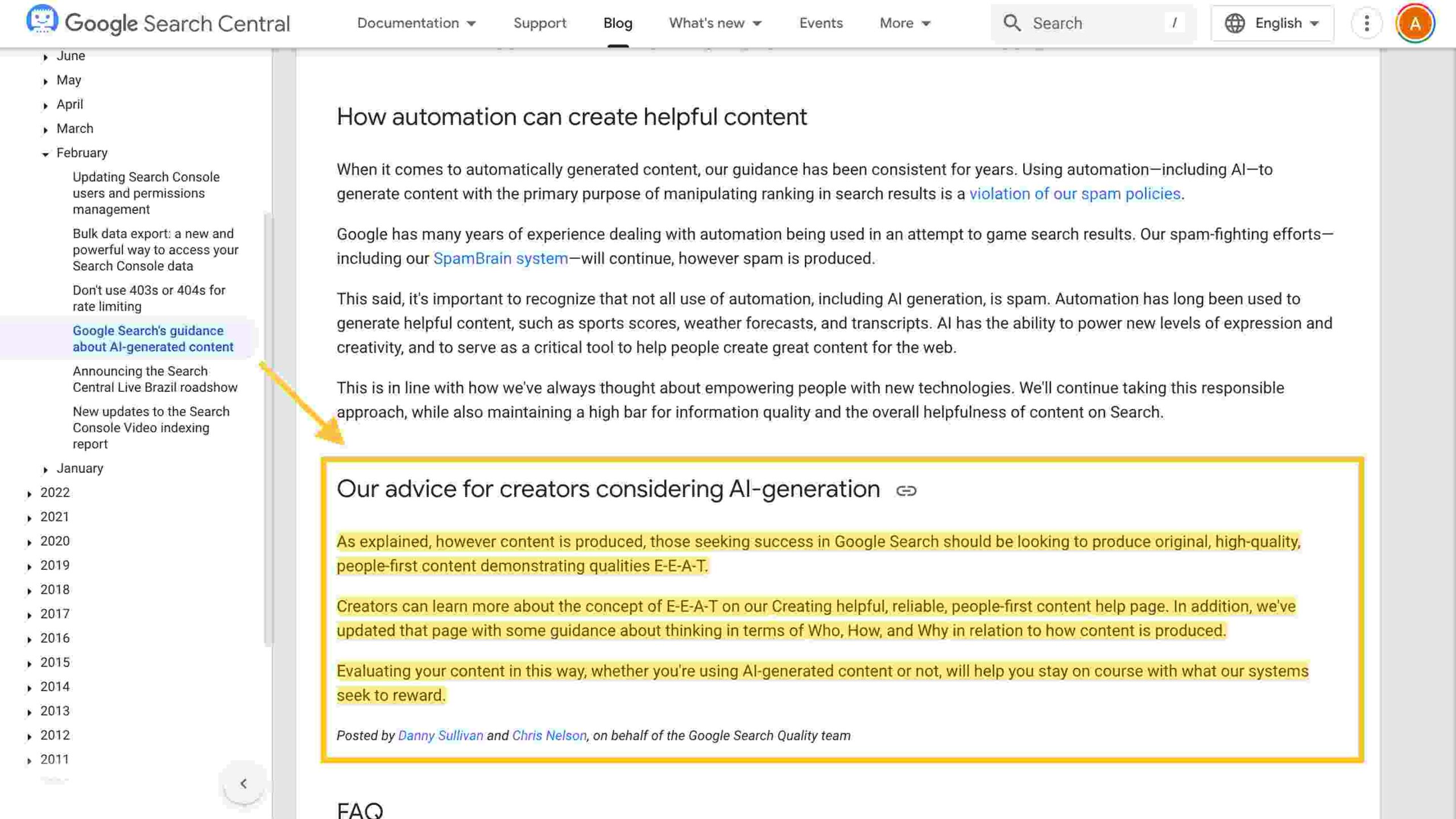
This means that if you’re using AI tools to generate content, it needs to be accurate, useful, and reflect a genuine understanding of the subject matter. Google wants value for its users, plain and simple. If your AI content feels like fluff or low-quality filler, it could hurt your site’s SEO rather than help.
So, according to Google, AI content will not affect your content SEO as long as you maintain high content quality. In fact, AI-generated content, when done right, offers several benefits that can genuinely boost your SEO efforts –
- AI writing assistant can generate content at a speed humans just can’t match. This means you can quickly populate your site with fresh content, keeping it dynamic and up-to-date.
- AI SEO tools can help optimize content with relevant keywords based on real-time data. This ensures your content meets current search trends.
- AI maintains a consistent voice and style throughout your content, ensuring a uniform brand message.
- As your business or project grows, the need for content increases. AI’s capacity to generate large volumes (AI bulk content generation) makes scaling your content relatively simple.
Also Read: AI Content Optimization – How to Improve Your Content for Better Outcomes

Tips for creating AI content while keeping SEO in mind
Crafting AI content that improves your SEO is all about balance and strategy. Here are some tips to help you ensure exactly that –
1. Use AI to research your audience
Using AI to research your audience can seriously up your content game. AI tools can dive deep into data and figure out who your readers are and what they genuinely seek. This insight provides clarity on the questions people are asking and highlights trending topics. Delve AI’s Persona is an AI-powered tool that creates buyer personas using your data, social media, and public sources. It’s designed to offer insights into your audience for your business, competitors, and social media platforms.
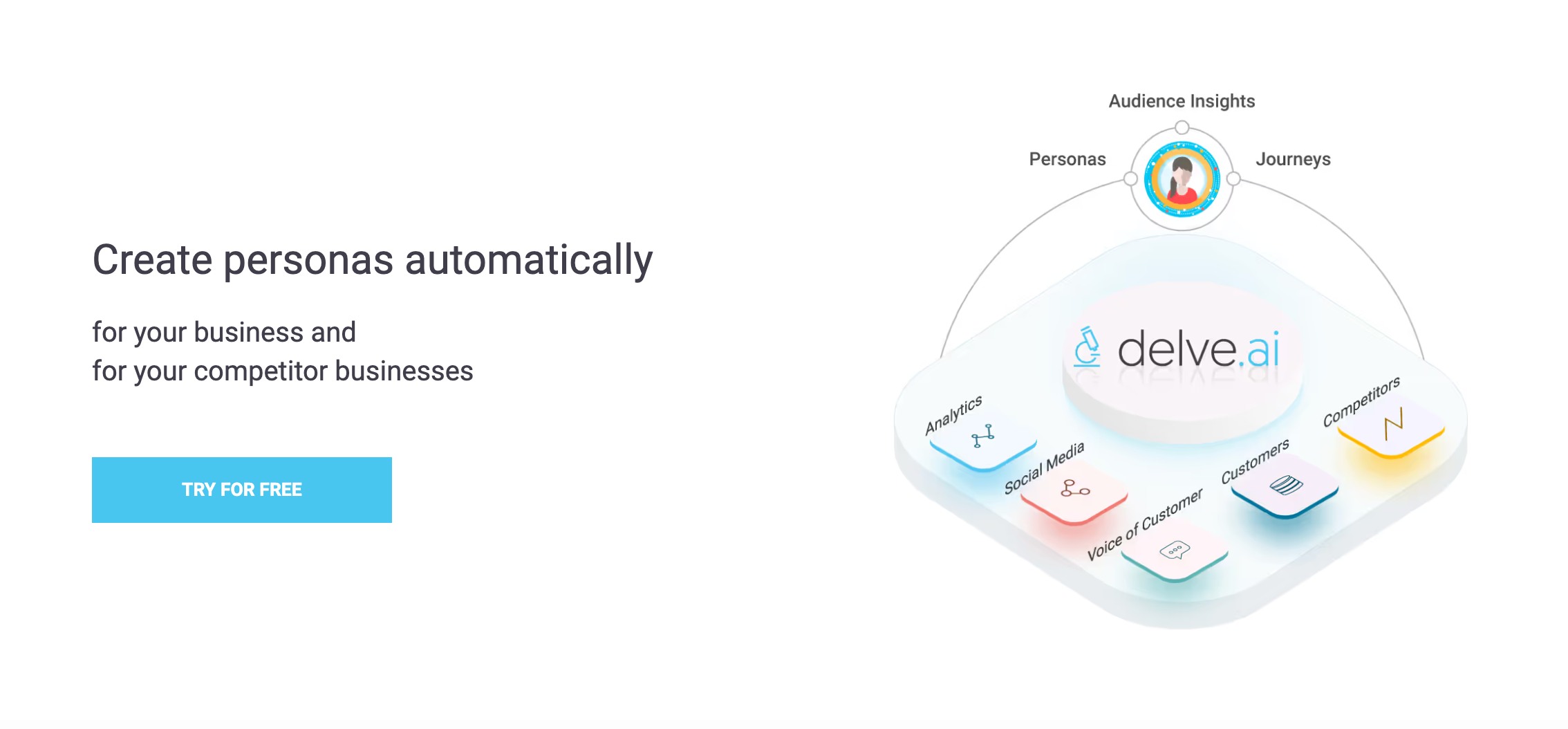
Next, employ AI to break down audience demographics. Age, gender, interests—these insights can help tailor your content more effectively. You’ll be able to create content that hits the mark every time. Plus, it’ll keep your SEO on point because you’re giving people exactly what they’re searching for.
2. Use AI for keyword research and SEO
With AI tools, you can easily identify the most relevant keywords and phrases that your target audience is searching for. This means no more guesswork or endless manual searches. Narrato’s AI keyword generator can quickly analyze tons of data from various sources to find high-performing keywords related to any topic.
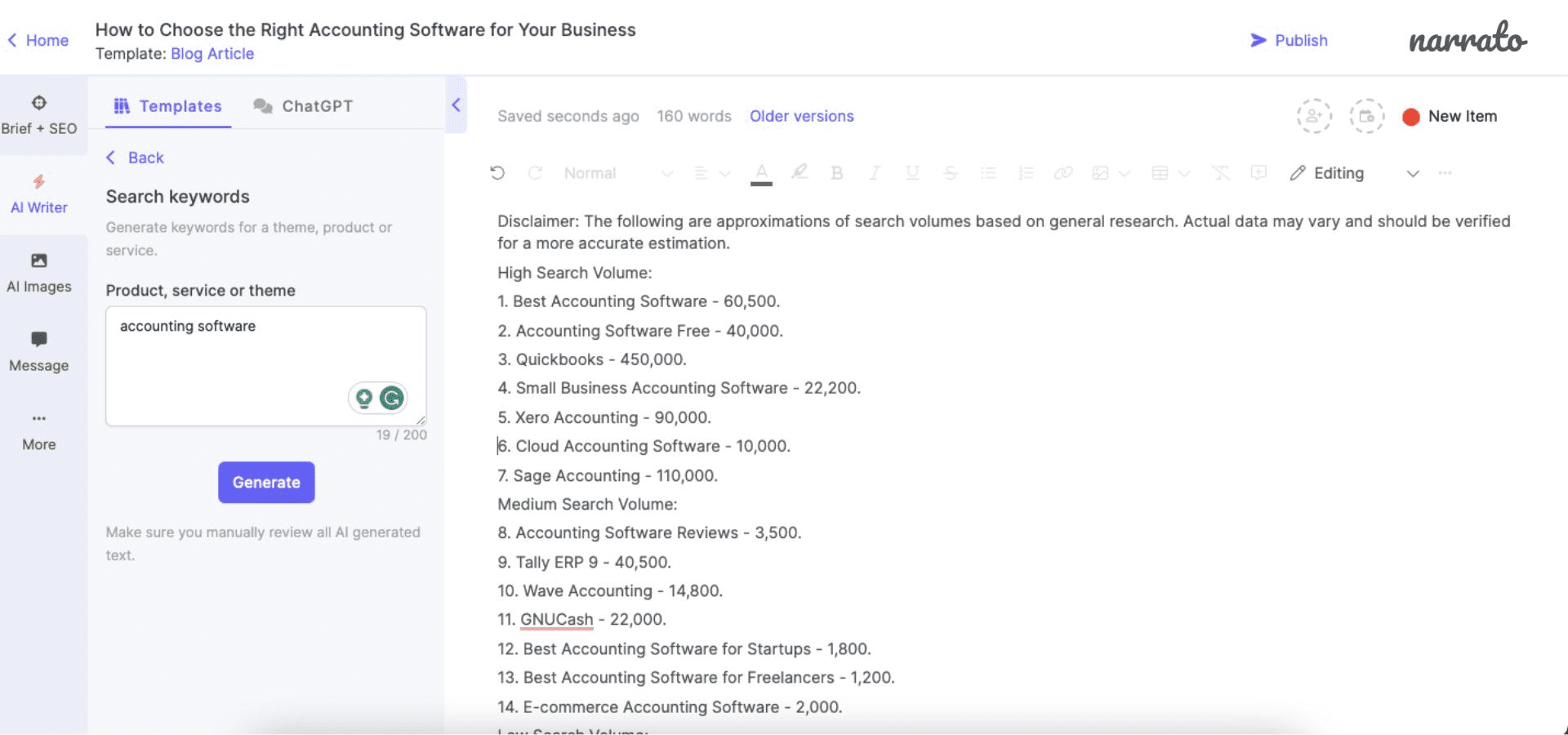
With Narrato, you can create SEO briefs to get keyword ideas, FAQs, competitor insights, and other SEO tips for content structuring.
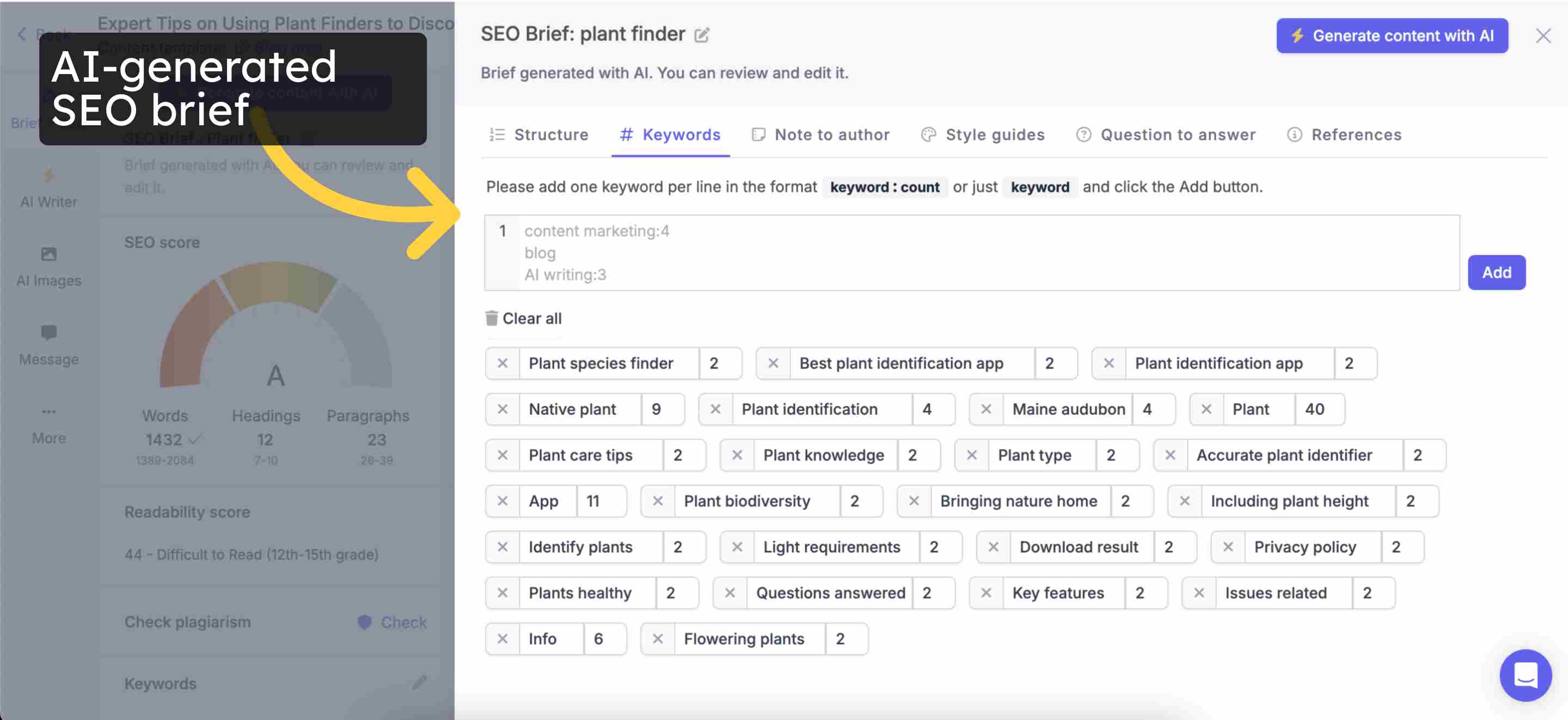
Beyond just keywords, an AI SEO writer can help optimize meta descriptions, and headers, and even suggest content improvements for better readability and engagement. It’s not only about finding the right words but also enhancing the overall quality and performance of your content.
3. Use AI as a starting point for content
AI content generators can be fantastic for giving you a starting point when you’re stuck with writer’s block. AI writing tools can whip up a basic structure or even draft entire paragraphs on your chosen topics in seconds. Just input some keywords or a general idea into an AI tool and let it churn out a skeleton of what you want to cover. This can save you loads of time.
Must-Read: SEO Writing with AI – How to Use AI SEO Content Generators
Here’s how to use AI to maximize your productivity –
- Content blueprint: Generate initial drafts that outline key ideas and points for your blogs, copy, emails, social posts, and other content with Narrato’s 100+ AI writing templates.
- Topic exploration: Use an AI content idea generator for brainstorming ideas for content topics
- Inspiration source: Get inspired by AI suggestions from AI meme generator, AI social media poll questions generator, and AI chat.
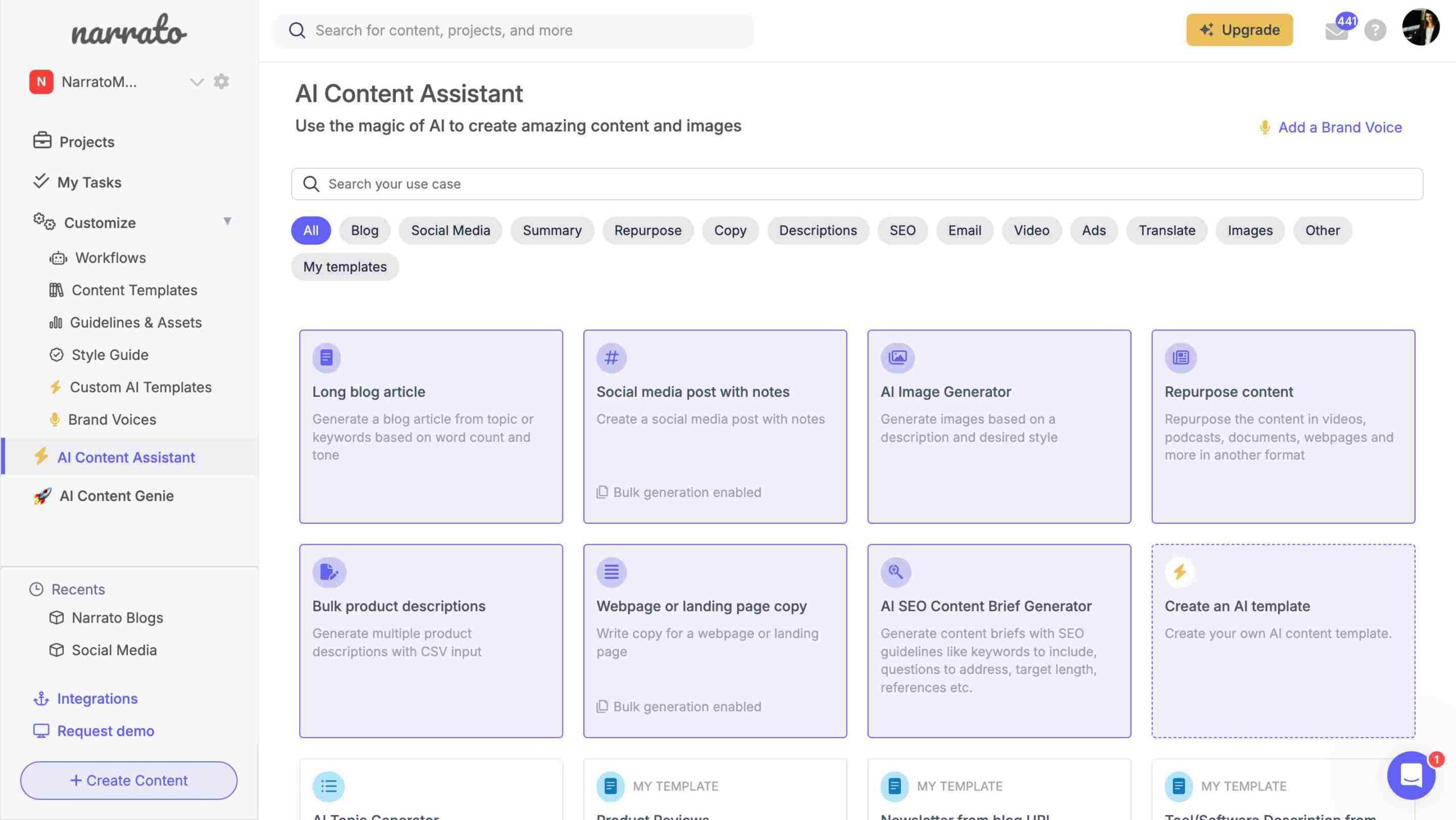
4. Always fact-check and edit the content
Fact-checking and editing are non-negotiables when creating AI content, especially when it comes to SEO. While AI tools can generate content and articles in a flash, you should be verifying facts from credible sources to maintain the accuracy and trustworthiness of your content. Next, take a red pen to that content—well, figuratively. Edit for clarity, grammatical errors, and SEO keywords to boost readability and ranking. Since robotic text is unappealing, humanizing AI content is vital for better engagement.
- Use AI paraphrasing tools to avoid falling into the trap of repetitive content and keep your work engaging and fresh.
- Use active voice to make your content more dynamic and engaging.
- Steer clear of unnecessary jargon, and use straightforward language that connects with a wide range of people.
Remember: Quality over quantity, always.
Also Read: How to Humanize AI Content with These Simple Hacks
5. Pose questions throughout your content
Asking questions within your content is a great way to invite readers to engage more deeply with the topic at hand. This approach nudges them to pause and reflect on what they’re reading. For example, posing questions like, “Have you ever considered this perspective?” or “What do you think about this idea?” can prompt readers to contemplate and mentally interact with the content. Questions also align with way users search on Google, making your content more likely to match user queries. Lastly, they help guide the narrative, breaking up text and driving curiosity forward. By doing so, your writing becomes not only more engaging but also more memorable, as it resonates on a more personal level.
6. Add original research and thought into AI-generated content
AI can help speed up the process of writing, but your unique insights make the content truly engaging. Combine data from reliable sources with your industry expertise to create valuable, informative pieces. Conduct interviews, and surveys, or cite recent studies to support your points. Share personal stories or analogies to make complex topics relatable. This will help in enhancing credibility but also boost SEO by incorporating authoritative and relevant information.
Also Read: Generative AI Use Cases: 5 AI SEO Writer Use Cases in Marketing
Wrap up
Wrapping things up, it’s clear that AI content can significantly influence your site’s SEO score (in a positive way). When you know how to use it right, AI can be a powerful tool for improving your productivity while enhancing your SEO efforts. Just remember a few key points while using AI content –
- Always review and edit AI-generated content for clarity, relevance, and originality.
- Use AI tools to assist in keyword research and not just content creation.
- Regularly update AI-generated content to keep it fresh and engaging.
A balanced approach—combining AI efficiency with human creativity—can help optimize your content’s performance and improve search engine rankings.


